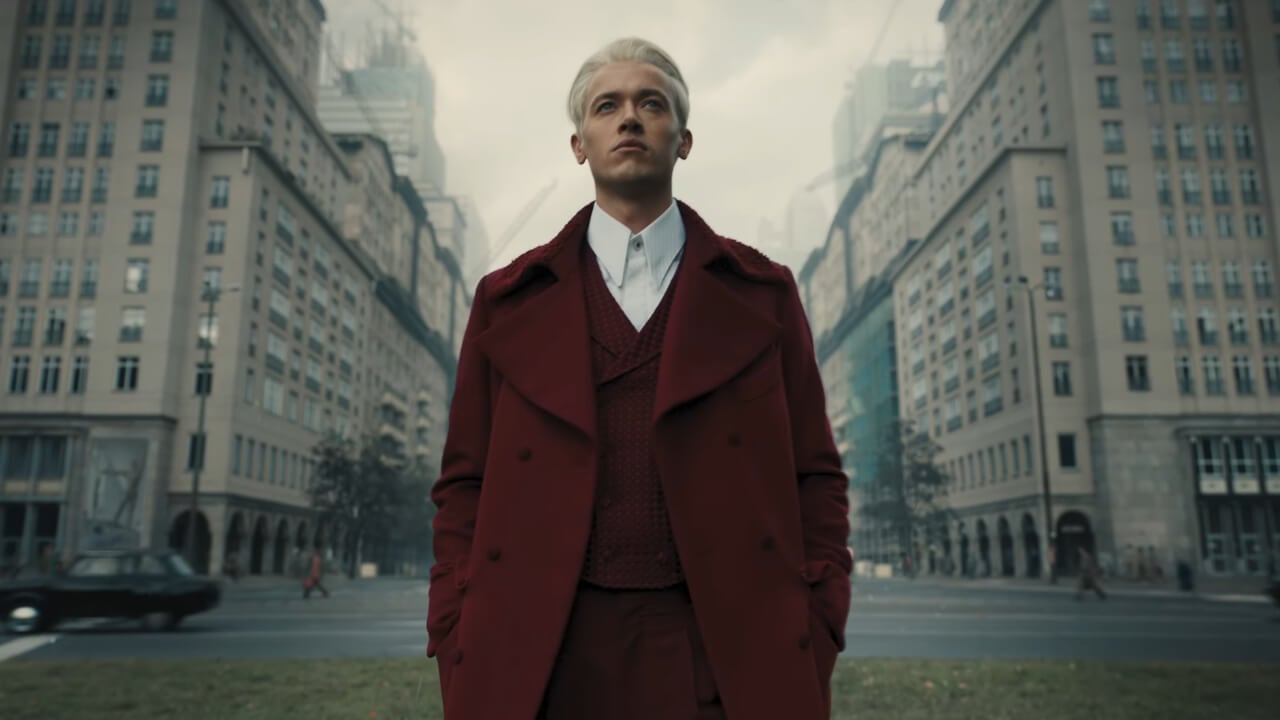“The Hunger Games: The Ballad of Songbirds & Snakes” is a cinematic triumph that transcends its source material, a prequel that delves into the deeper, more intricate aspects of Panem’s dystopian world. Director Francis Lawrence returns to the franchise with a vividly realized vision, set 64 years before the original saga, unraveling a narrative that is as much about political maneuvering as it is about the spectacle of the games.
At the heart of this prequel is the young Coriolanus Snow, played with captivating depth by Tom Blyth. Blyth’s portrayal of Snow’s evolution from privileged youth to a cunning figure of authority is nothing short of mesmerizing. His transformation is a study in subtlety and complexity, showcasing a young man’s descent into moral ambiguity and power’s corrupting influence.
What sets this film apart is its focus on the psychological rather than the physical aspects of the Hunger Games. The screenplay by Michael Lesslie and Michael Arndt delves into the intricacies of power dynamics and manipulation, moving beyond the straightforward brutality of the games to explore the nuanced decisions that shape a tyrant.
The film is further elevated by the performance of Rachel Zegler as Lucy Gray Baird, the District 12 tribute. Zegler brings a haunting vulnerability to her role, her melodic voice echoing the defiance and rebellion that define the franchise. The chemistry between Blyth and Zegler is electric – a blend of attraction and wariness that adds a layer of complexity to their interactions.
Viola Davis is formidable as Dr. Volumnia Gaul, the game maker. Davis delivers a performance that strikes a perfect balance between elegance and menace, complemented by Trish Summerville’s stunning costume designs. Jason Schwartzman, as Lucky Flickerman, brings a delightful edge to the narrative, his character offering a satirical take on media sensationalism.
Peter Dinklage, as Casca Highbottom, anchors the film with a grounded, wise performance, providing a moral counterpoint to the escalating violence of the games. His portrayal adds a layer of gravitas to the unfolding drama, making his character a pivotal presence in the narrative.
The film’s final act, “The Peacekeeper,” marks a significant tonal shift. Here, the story moves from the opulence of the Capitol to a pastoral setting, where cinematographer Jo Willems captures a mood that is both romantically idyllic and ominously tense. This section of the film allows for a more profound exploration of Snow and Lucy Gray’s relationship, culminating in a crescendo of suspense and emotion.
“The Ballad of Songbirds & Snakes” goes beyond being a mere prequel; it’s a richly layered story that explores themes of ambition, loyalty, and the corrupting nature of power. It succeeds not just in expanding the lore of “The Hunger Games” universe, but also in standing as a formidable film in its own right. This is a movie that not only captivates fans of the series but also stands as a compelling entry point for newcomers.

